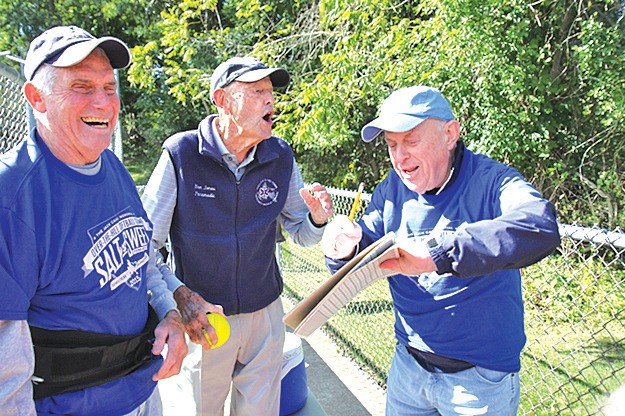Jenifer’s Journal: Spiritual Syntax

Years ago I was trying to write another of my one-woman shows. I titled it “Spiritual Syntax,” my purpose being to write and perform a little show that would, in an entertaining way, reconcile what I consider to be the false divide between science and spirit, while gently provoking my audience into considering that there may be no such thing as religious spirituality or secular spirituality, but only human spirituality.
This, like it or not, lives in each one of us and, along with opposable thumbs, is one of the defining features of our species.
Yeah, that was my goal: a ten-ton champagne bubble of a show.
A few weeks ago I read a recent article in the Daily Beast by U.S. Sen. Chris Murphy and Harvard philosopher Ian Marcus Corbin, titled: “The Left Needs a Spiritual Renaissance. So Does America.” The article posits that we all have “an opportunity to ground this work in a generous, inclusive, galvanizing spiritual vision … if only we will engage in the kind of brave, humble, heart-deep spiritual questioning that has animated so many of our tradition’s greatest achievements.”
I’ve become emboldened to raise the subject again, if only because I’ve never seen the word “spiritual” used in any mainstream news venue — ever. Not 10 days later, in a Washington Post article by Aaron Gregg, et al, entitled “AI poses ‘risk of extinction’ on par with nukes,” the authors open with the following: “Hundreds of artificial intelligence scientists and tech executives signed a one-sentence letter that succinctly warns AI poses an existential threat to humanity, the latest example of a growing chorus of alarms raised by the very people creating the technology,” and they include a quote from U.S. Sen. Richard Blumenthal that “these technologies are no longer fantasies of science fiction. From the displacement of millions of workers to the spread of misinformation, AI poses widespread threats and risks to our society.”
There you go.
Discussions of both the dangers of science and technology and the nation’s need for spiritual vision practically side-by-side in the news. Amazing!
And at least one place where these seemingly disparate domains intersect is potentially dangerous. I agree with prolific author, Mitch Albom, author of 1997’s “Tuesdays With Morrie,” who, in an article for The Detroit Free Press, “Losing Our Religion and Replacing it with Social Media,” writes that ”the seduction — and danger — of the internet is the power it [represents]… in the religion of social media, the internet is the universe.”
The fact seems to be that for all kinds of reasons, not the least of which is the much-misinterpreted dictum regarding the necessary “separation of church and state,” — which, by the way, neither appears in the Constitution, nor in the First Amendment, or anywhere else but in an 1802 letter from Thomas Jefferson to the Danbury Baptists in Connecticut — nonetheless has succeeded in exiling the realm of the spirit from our daily lives and discourse.
Because, to this day, we continue to conflate “spirituality” with “religion,” we have created a spiritual vacuum which AI and the infinite, powerful, mysterious internet that it has spawned, seems to be filling, to the societal detriment of everything from big business to education.
Better late than never, let me define “spiritual,” or better yet, let Webster’s do it for me: “Of, relating to, consisting of, or affecting the spirit: incorporeal.” OK, and it defines “incorporeal” as: “having no body or form,” such as ideas, emotions, and all kinds of “unseen” enterprises like composing, creating, contemplating, conjecturing, dreaming, theorizing, visualizing, remembering, reflecting, planning, predicting, projecting —“etcetera, etcetera, etcetera.”
We’ve become an answer-centric society for a species that’s built to ask questions. These big brains of ours and the mysterious minds we cart around inside them have been adapted for exploration of a vastly larger territory — the frontiers of which call for powers of consciousness and creativity that we only barely apprehend at the moment.
Who and what are we? What constitutes an honorable life? How best to use the tools of technology? How best to fulfill our dreams and potential? And how best to contribute to the greater good? These kinds of big questions are universal. They inspire, they open, they fuel the quest, and they necessarily overlap into areas of belief and values and ethics, the very things we’ve been so hyper-vigilant about keeping on the other side of that artificial divide we’ve constructed.
As Murphy and Corbin say in their article, “Most versions of spirituality, of whatever tradition, tell us that what really matters is goodness, compassion, harmony with nature, self-discipline, mindfulness, holiness, the virtues, etc. … these spiritual values are not zero-sum objects of competition. They are common goods — the compassion of my neighbor will tend to make me more compassionate, too.”
That’s the spirit!









